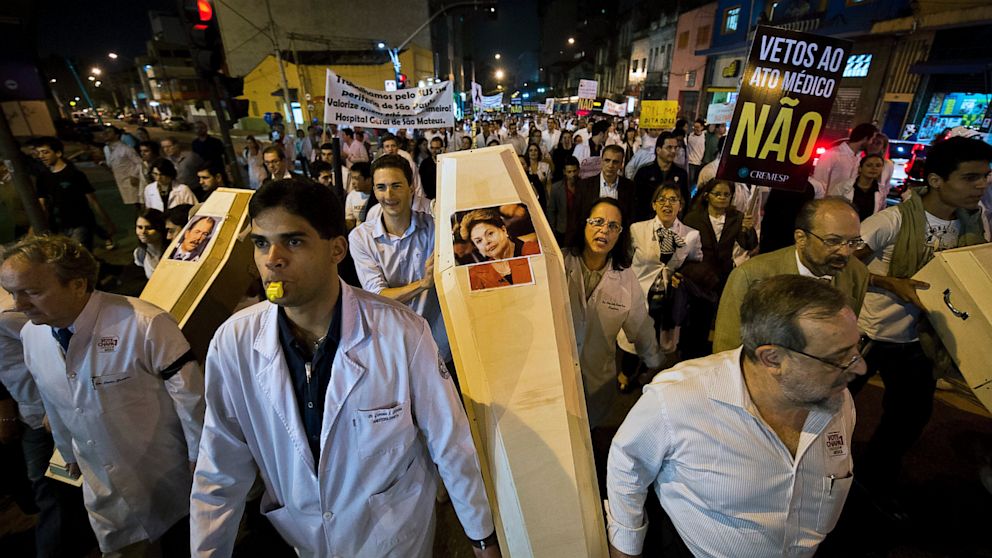Why Brazil Is Importing Cuban Doctors Amid Protests
Brazil is Short of Doctors in Remote Areas

Sep. 8, 2013— -- Last week, Brazilian medical associations and human-rights groups greeted Cuban doctors who've been hired to bolster that country's ailing health system with accusations of entering the country to steal Brazilians' jobs.
The Brazilian government has condemned the demonstrations, and officials have repeatedly tried to convince medical associations of the necessity of importing doctors as part of an initiative called Mais Médicos (More Doctors). The public program aims to send health professionals to some of the country's poorest and most remote areas.
Brazil has one of the worst patient-to-physician ratios of all the major economies, according to World Bank data. While Spain has four doctors for every 1,000 citizens, Brazil has 1.8. Cuba, meanwhile, has a large amount of doctors, despite its numerous economic problems, with 6.7 physicians for every 1,000 people.
"We created this program because society is calling for it," President Dilma Roussef said last week. "We hear you have a problem with the [health] service. So we created a program to search for doctors for those places where there aren't enough. Here in Brazil, there are 700 municipalities where there is no doctor living there."
Under Brazil's constitution, everyone is guaranteed access to free public healthcare, so the lack of doctors presents a problem for the government. It also represents a fundamental setback for millions of Brazilians who live in the remote municipalities where doctors are rare.
To solve this problem, Dilma Roussef's government came up with the Mais Médicos program. Initially, the government offered 15,460 posts in remote parts of the country to Brazilian doctors. The posts paid considerable salaries ($4,250 a month) and offered free housing and board. Despite those benefits, only 938 Brazilians physicians applied for the jobs.
Most doctors in Brazil live in large cities, and come from middle class families. So they have few connections with the remote, poverty stricken places where the government was offering jobs.
The government then decided to offer the positions to foreign doctors. Physicians from Argentina, Portugal and Spain applied for three-year contracts to live and serve as general practitioners in Brazil. The incentive for these doctors was clear: They all come from places with high unemployment rates, whose economies aren't doing too well.
The Cuban doctors, who are paid $30 a month or less on the communist island, have an even greater incentive to head abroad. In Brazil they will earn around $4,250 per month, and even though the Cuban government will retain as much as two thirds of their salary, Cuban doctors will still be left with an amount of cash that is astronomically greater than what they make at home.
Brazil is set to hire around 4,000 Cuban doctors to fill some of the vacant positions for the Mais Médicos program. But this has not pleased doctors' unions in the South American country.






